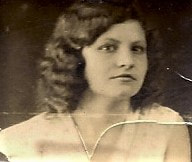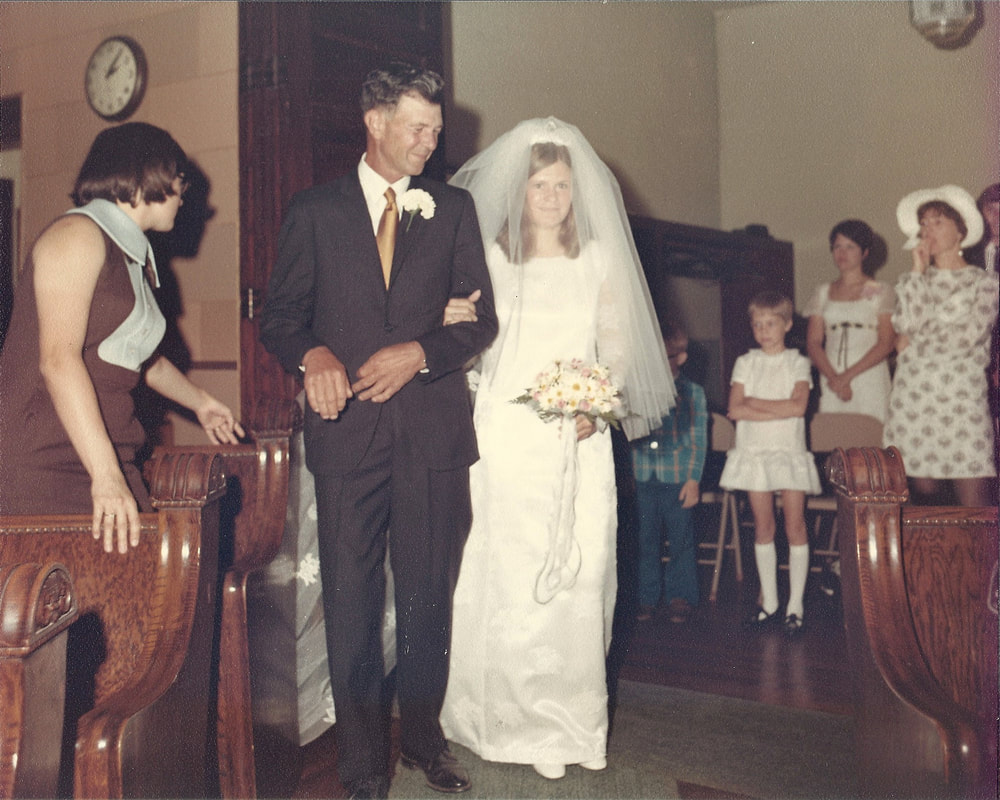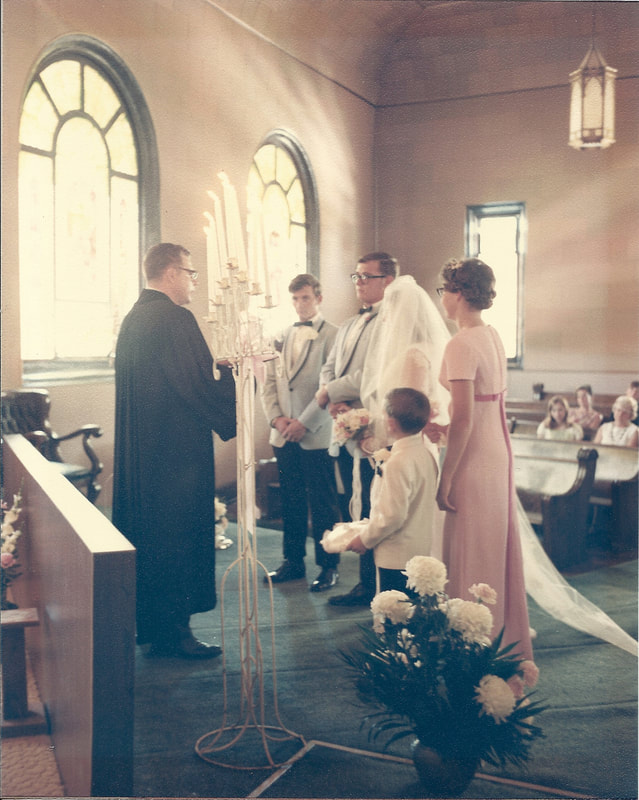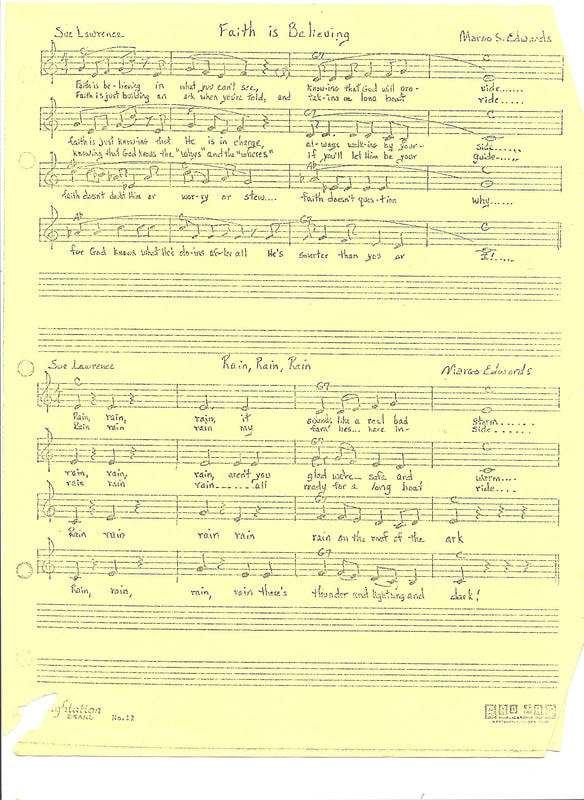The Storyteller |
|
This isn't my story, but I believe it is one that every American should read. He was my father-in-law, Paul Lawrence. He was very young here. He enlisted at the tender age of 15. He lied about his age, and they took him. He was eager to serve his country, and perhaps to see a little of the world. About three years later, his mom received this telegram. This is his story, written after he came home to Des Moines. The “Death March” Across Poland by Paul Lawrence At four o’clock on the morning of February 21, 1945, our German guards routed us from our bunks in the prison farm at Rummelsberg, near the Polish border and informed us that we were to be marched from that place, our destination unknown. There were ten of us Americans who had been captured and had spent our days since at long hours of hard farm labor. Although our captors worked us hard and our fare consisted of turnips and potatoes and weak soup for the most part, the trial which was before us was to be more harsh and inhuman than we ever dreamed of. We had no overcoats, overshoes or anything that is necessary for protection in that climate. I was thankful for a good pair of U.S. Army shoes, and a jacket that helped me keep going. We only had one blanket apiece to protect us from the freezing night air we were to experience sleeping on the frozen open fields. We marched on an average of 23 miles each day our column constantly swelling from numbers of other prisoners added along the line of march. As we progressed on this march the weather became bitterly cold, often dropping to fifteen or twenty degrees below zero, with the addition of rain, snow and sleet, which soaked our clothes and shoes. Then came night with its terrible penetrating cold and many of our men froze their feet, being unable to dry their socks or shoes and being herded out into open fields to sleep or occasionally allowed the shelter of a barn. Of course no fires could be built as allied aircraft would have immediately bombed us. As daylight appeared, we were aroused by German guards and forced upon our aching feet, to resume the march. For sustenance we had one meal a day consisting of 3 pieces of black bread (about 8 oz.) and two small cooked potatoes. Added to the lack of food was the scarcity of water. We were soon exhausted from such treatment, but a single complaint brought a curse or blows from a rifle butt from our guards. soon men began to fall exhausted or unable to longer stand on their frozen feet. Gangrene set in, so we improvised slings to carry some of our comrades, but we couldn’t carry them all and as our captors relentlessly drove us at increased speed to keep us from falling into the hands of the victorious Russian army, men fell by the roadside and lay in the ditches and we never saw them again. I saw four men die one day from exhaustion and lack of food and medical help. The American soldier somehow manages to keep up his morale. Even in the midst of this living, walking death, there were some who managed to carry along a guitar and their singing and playing buoyed up our spirits. I think the grandest morale builder was the sight of American bombers and fighters ranging the skies over us. Sometimes they machine gunned our column, not knowing we were prisoners and we would have to scatter for the roadside ditches and lay there while American bullets kicked up the dirt around us. The days and nights finally merged into a sort of horrible nightmare. Often I wondered as did so many of us, could I make another mile? We staggered along impelled only by a grim determination to live. So passed these terrible days of marching until at last we arrived at a German airport near Hamburg on April 1, 1945. Here we halted and our captors tried to force us into labor battalions to repair the badly bombed airport. We stuck by our rights, as prisoners of war are not compelled by military law to perform such labor. The Germans retaliated by starving us with one bowl of turnip soup each day and quartering us at night in exposed positions so that we got no rest from the nightly air raids on this airport. We were reduced to skin and bones. My weight dropped to 135 pounds, but many were much worse off than I. During the day the American bombers visited us and searched for the hangars and blew great holes in the runways of the airport. The ground fairly rocked from the terrific concussion. Tons of loose dirt almost buried us alive. Then at night the big British Lancaster bombers took over. They would remain over the target often as long as two hours and sometimes they dropped big four ton block-busters. They really did make a noise. I have seen them lift boxcars into the air like match boxes, and the damage to everything in the vicinity was terrific. Many of us were wounded by flying fragments of bombs. On the sixth of April we were again on the move. This time our guards marched us harder and faster than before, because the Americans were getting closer each day. Our captors informed us that any stragglers or anyone attempting to escape would be shot as spies. Our treatment made us desperate so my buddy and I planned to escape in spite of certain death we knew awaited if we were caught. We made our escape at ten o’clock on the evening of April 10, 1945 and lay hidden for four days. At night our desperate hunger drove us to forage for food which we found practically unobtainable. We ate anything we could find, even a frozen turnip was a delicacy. As soon as we could, we resumed our search for the American lines. After five days and nights of hiding by day a skulking the forests and fields by night on the fifteenth of April, in the morning, we sighted an American tank. We lost no time in identifying ourselves and I confess that the joy of deliverance was too much for our shattered nerves and worn bodies, and we cried like babies. From then on our troubles were over, and how we did eat! And then we began the best part of all--our journey home. Of course, he is a hero. He was recognized and received a Purple Heart. But in my opinion, he is also a hero for what he did afterwards. He came home and got the job that he worked at until retirement. He married Peg and they were together for 60 plus years until death parted them. He raised three children, all exemplary citizens, community members, and parents themselves. Although he carried the scars of his wartime experiences for all of his life, he never complained. He did his job, provided for his family, and became a man any of us could (and should!) admire. Well done, Paul Edward Lawrence. Thank you.
1 Comment
|
AuthorSusan Lawrence taught elementary school for 33 years before hanging up her chalkboard to write and speak. She writes novels for both adults and middle grade children. Susan lives in Iowa with her husband and short-legged Lab, Molly. She has 3 children and 7 grandchildren who love to hear her stories. Archives
December 2022
Categories |






 RSS Feed
RSS Feed
